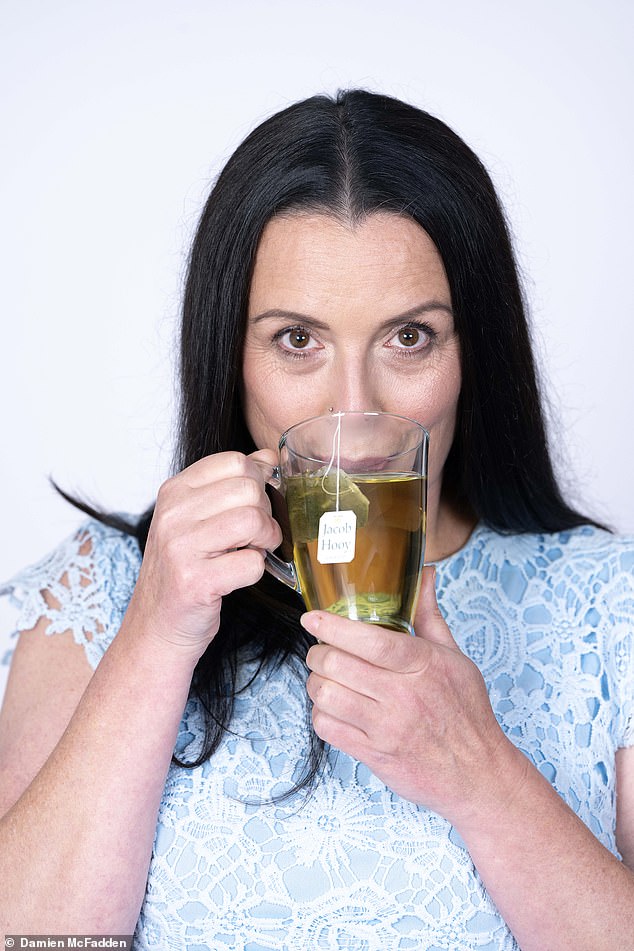After a long, stressful day at work, Katy Walton treats herself to a tall glass of something cold and refreshing. Something that will help her relax, unwind, and even sleep more soundly.
Katy’s drink of choice isn’t a Pinot or a Chardonnay. It’s bubbly, subtle in flavour and infused with cannabidiol, an oil derived from the hemp plant.
This natural ingredient, commonly known as “CBD,” is also found in cannabis or marijuana. But this doesn’t mean Katy is going to be getting high all night. Unlike the psychoactive compounds found in illegal forms of the drug, CBD is not addictive, doesn’t produce a “high,” and is said to promote relaxation.
So perhaps it’s no surprise that canned CBD beverages have found popularity among middle-aged women who previously indulged in the ritual of “wine hour.”
CBD products, which also include tea bags, gummies, oils and capsules, have been sold in this country for more than a decade but first hit supermarket shelves in 2019, sparking a huge surge in demand from mainly female customers.
Mother-of-one Sarah-Louise Smith from Wirral, Merseyside, has suffered from depression in the past and says CBD tea has been a “game changer”
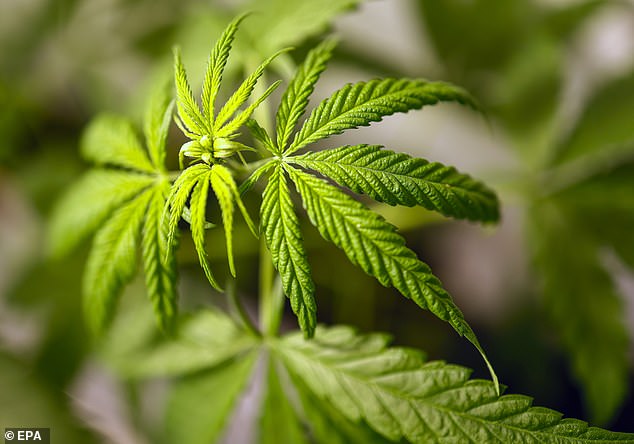
This natural ingredient, commonly known as “CBD,” is also found in cannabis or marijuana. But unlike illegal forms of the drug, CBD is not addictive and does not produce a “high.”
The latest data shows that 18 million people consume CBD in some form, with the market worth around £690m. According to the British Nutrition Foundation, 13% of women and 9% of men in the UK consume CBD drinks. Some customers claim that it helps overcome the mental fogginess of menopause.
The drinks have a brilliant and high-end reputation and have quickly become one of the most fashionable drinks.
Leading brands Trip and Goodrays, with their stylish packaging and cocktail-style flavours (such as Peach & Ginger, Elderflower & Mint, or Lemon & Basil), are sold in Waitrose and online boutique stores, and have been endorsed by the likes of Gwyneth Paltrow, Jennifer Aniston and Claudia Winkleman.
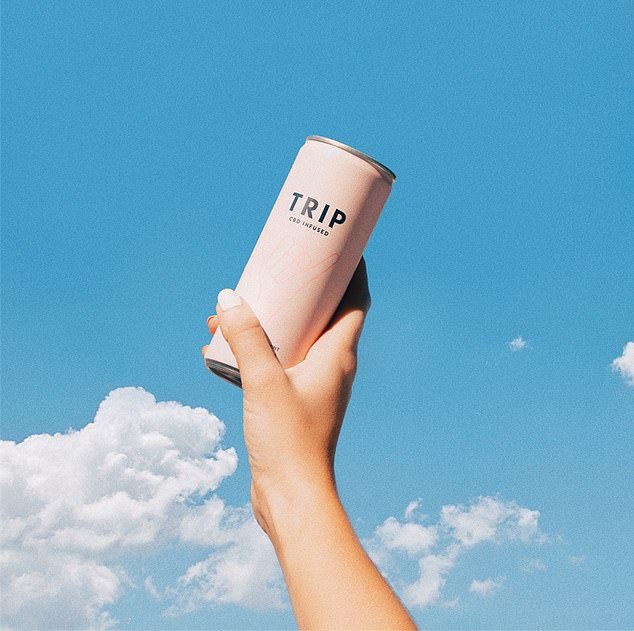
Leading brand Trip has sleek packaging and cocktail-like flavours including peach and ginger, elderflower and mint, or lemon and basil.
The high price tag (up to £7 for four cans) is aimed at a particularly affluent market. And it doesn’t hurt that a can of Trip, which contains 15mg of CBD, contains just 20 calories.
Proponents of the drink, like Katy, believe it offers a healthy alternative to both alcohol and Diet Coke. But is this belief wrong?
In 2022, a World Health Organization report found that CBD can help treat symptoms of a variety of diseases, from Alzheimer’s and Parkinson’s to arthritis and even cancer.
But last year, the Food Standards Agency slashed its recommended daily limit for CBD consumption, from 70mg to just 10mg (less than a single can).
The change – potentially a blow to the 400 companies making CBD products for the UK market – came with a warning that regular, long-term use of the chemical is “potentially damaging” to the liver and thyroid.
While there is no outright ban on products containing more than the new limit, the FSA plans to work with manufacturers to reduce the amount of CBD in High Street drinks.
Will this deter Katy, 42, a PR consultant from Chippenham, Wiltshire, from drinking it?
Katy, a mother of four children (two sets of twins, aged seven and 13), admits that for years she allowed herself to have “a glass of wine to relax while cooking dinner after a stressful day”, but two years ago she started drinking cans of Trip to “consciously change some unhealthy habits”.
“I’ve never been a big drinker, but I found that alcohol was something I chose to relax me, and it actually made me feel more anxious and restless,” she says.
“CBD makes me feel calm and clear-headed. Wine makes you feel groggy. It can also be a little disconcerting. A glass of CBD does the opposite: it makes you feel more present.”
Katy says the drinks even help combat her perimenopausal symptoms: “They give me a feeling of sharpness and break through the perimenopausal fog.”
Certainly music to the ears of Trip’s founders, a high-powered British duo made up of former Goldman Sachs analyst Dan Khoury and ex-lawyer Olivia Ferdi. They are quick to point out that the CBD present in their drinks is neither dangerous nor addictive and is only found in small quantities (15 mg per can).
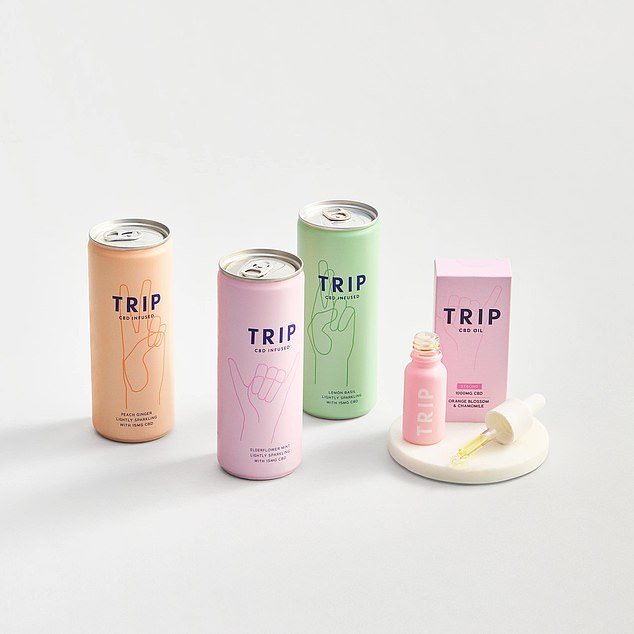
The latest data shows that 18 million of us now take CBD in some form, and the market is worth around £690m.
But Harry Sumnall, professor of substance use at Liverpool John Moores University, says more research is needed into the long-term effects of CBD products.
‘There is currently no scientific evidence that the doses of CBD present in drinks available on the high street help people relax or reduce anxiety,’ he explains.
‘Not only is the dose of CBD in most popular drinks low to begin with, but about a third of the dose will be broken down by the body before it can begin to work.’
Reports of CBD health benefits are in fact associated with much higher doses, which should be administered under medical supervision.
Amanda Akien, 45, from Buckinghamshire, founder of copywriting company Moo Marketing Copy, has been drinking CBD cans for just over a year and takes them three times a week.
“I like the flavours and the low calories,” she explains. “They relax and calm me down. I suffer from anxiety and I can tell the difference. They are not addictive, one is enough for me. Plus, they don’t give me a hangover.”
Amanda describes the feeling she gets after drinking CBD as “like a warm hug,” which comes on about ten minutes after the first sip.
“It’s not a dizzy feeling,” she says. “It’s just relaxing. I’m not sure what’s medical and what’s mental.”
However, she admits that some are surprised by her decision, adding: “I was at a networking event last week and I was talking to two strangers about how I sometimes had a CBD drink instead of a glass of wine during the week. They seemed horrified.”
Despite being a fan, she says she always checks the CBD level in the can before opening it and admits that the lack of conclusive research is “negative.”
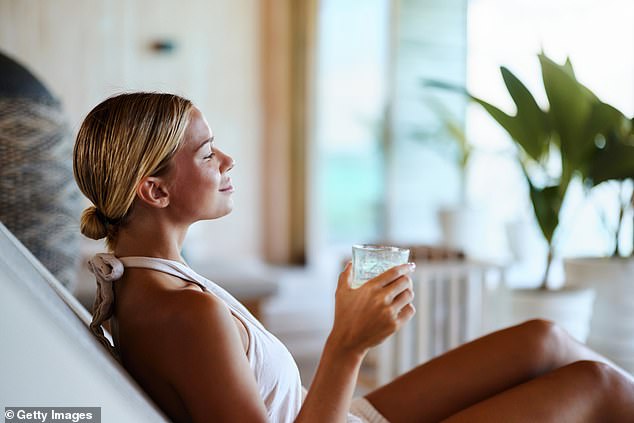
Proponents believe CBD drinks offer a healthy alternative to both alcohol and beverages like Diet Coke.
While she has never experienced any side effects and doesn’t know anyone who has, this is not unheard of, even for light drinkers.
Experts the Mail spoke to cited upset stomach, diarrhoea and headaches, as well as a small risk of breathing difficulties, rashes and fainting for first-time users with an allergy to CBD.
However, Professor Mike Barnes, consultant neurologist and medicinal cannabis expert, says this should not be a cause for alarm, saying: “The overwhelming evidence from published studies is that CBD is safe at doses up to at least 15mg.”
One area where experts are unsure is the relatively new market for CBD-infused alcoholic drinks. Manchester-based Aqua Sativa, for example, makes CBD-infused gin, rum and vodka, while Cannabrew sells pale ale with 15mg of CBD added.
But mixing the two can be unpredictable. Not only do CBD’s effects make it difficult for drinkers to control their alcohol consumption, but in the U.S. the Food and Drug Administration (FDA) has warned that the combination can cause drowsiness, coordination problems and, in rare cases, vomiting.
Amanda Akien says she knows people who mix CBD with alcohol in cocktails, but she wouldn’t do it herself.
“For me, it wouldn’t make sense,” she explains. “I use them as an alternative, so I wouldn’t even have a CBD drink and then a wine.”
But soda isn’t the only CBD product that appeals to middle-aged moms.
Mother-of-one Sarah-Louise Smith, from Wirral, Merseyside, has suffered from depression in the past and says CBD tea has been a “game changer”.
She started using a few drops of CBD oil in chamomile tea and then, four years ago, she found CBD tea bags for sale at Holland and Barrett. She was sceptical at first, but decided to give it a try and now buys the bags, which contain around 7-8 mg of CBD, in bulk directly from a manufacturer in the Netherlands.
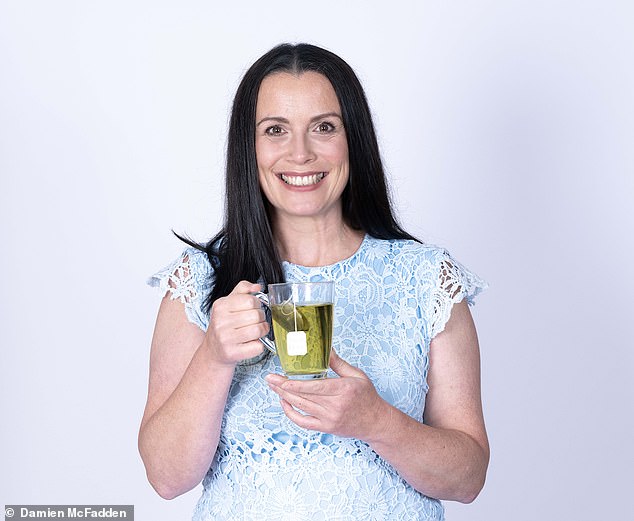
Sarah now buys CBD tea bags, which contain around 7-8 mg of CBD, in bulk directly from a manufacturer in the Netherlands.
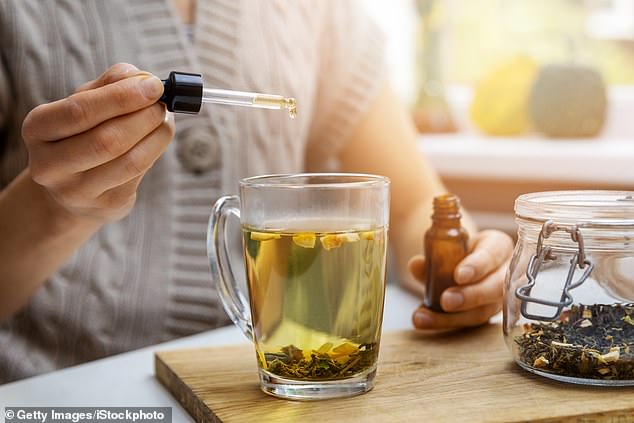
Soda is not the only CBD product that appeals to middle-aged moms, the product is also available as an oil and in tea bags.
“I drink it like normal people drink Tetley,” explains Sarah-Louise, 47, who works in a call centre and runs her own stand-up paddle boarding company.
‘I drink coffee in the morning and then CBD tea during the day at work. One day I handed out the tea bags to my colleagues and they all said they slept really well that night.
“If I’m feeling agitated, I drink a tea and I don’t feel high, but I’m back to normal. The other day I made a bad decision at work, I took a break, had a tea and ten minutes later I felt much better.”
She adds: “It makes me feel relaxed, without worries or problems, just very calm. If I drink an infusion before going to bed, I sleep deeply. If I had a glass of wine, my anxiety would go through the roof.”
“I can’t even imagine how much cannabidiol tea contains. I think fizzy drinks are more harmful.”
That’s certainly a great endorsement, but for now, the best advice for women who indulge in CBD at night seems to be the same as for those who drink alcohol: think before you drink.
(tags to translate)dailymail


